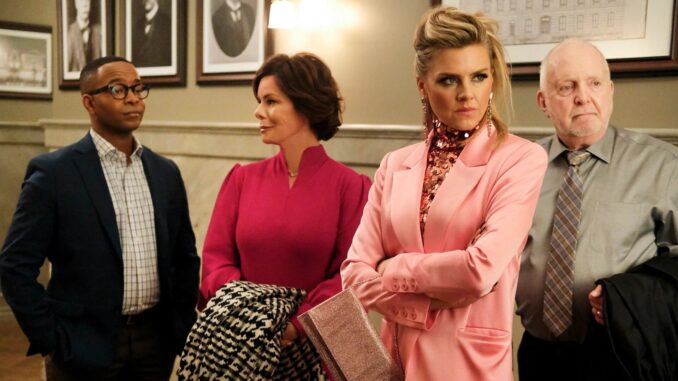
The quiet hum of a Friday night, the familiar theme music playing in living rooms across the nation, a ritualistic settling in for another hour of comfort and curated chaos. This is the bedrock of the network procedural – a genre as reliable as the changing seasons, delivering solvable mysteries and a dependable moral compass. Then, the internet lights up with an unexpected frost: cancellation. But for one CBS procedural, this wasn't the end; it was merely the spark that ignited a fervent, digital inferno, culminating in over 50,000 signatures for a renewal campaign. This phenomenon is more than just a plea for a beloved show; it’s an illustrative microcosm of the evolving relationship between content creators, corporate gatekeepers, and the increasingly vocal, digitally empowered audience.
The allure of the procedural lies in its very predictability. In a world often devoid of clear answers, these shows offer a satisfying arc of problem, investigation, and resolution. They are not merely television; they are a weekly balm, a communal appointment, a surrogate family. For years, this implicit contract between network and viewer remained largely unchallenged. Ratings dictated fate, and the audience, for the most part, accepted the verdict with a sigh and a search for their next televisual comfort blanket. But something has shifted. The internet has transformed the passive viewer into an active participant, and the cancellation of a show, especially a "controversial" one – meaning its loyal base feels the decision is unjust or premature – is now met not with resignation, but with a collective gasp, followed by a digital roar.
The initial sting of betrayal quickly coalesces into a call to arms. Online forums, social media hashtags, and dedicated fan groups become impromptu war rooms, echoing with the cacophony of shared grief and burgeoning resolve. The petition, in this new landscape, becomes the preferred weapon. It's democratic, accessible, and quantifiable. Each of those 50,000 signatures represents not just a name on a list, but a click of conviction, a fleeting moment of hope, and a personal investment in the show's narrative. It’s a testament to the fact that for many, these characters and their weekly dilemmas transcend mere entertainment; they become part of the fabric of their lives, providing connection, escape, and even a sense of justice.
The act of gathering 50,000 signatures is a powerful, illustrative act of defiance against the cold calculus of spreadsheets and demographic analysis that often underpins network decisions. It's an emotional argument pitted against a corporate one. Networks operate on the logic of maximizing ad revenue, appealing to the broadest possible audience, and constantly refreshing their slate. A loyal, albeit perhaps niche, fanbase, might not always register as a financial priority in their algorithms. The "controversial cancellation" often arises when the network's data-driven decision clashes violently with the passionate, qualitative experience of its viewers – a perception of a show being unfairly axed despite its quality, cultural relevance, or dedicated following.
Yet, this surge of fan activism, while impressive, exists in a liminal space between fervent hope and stark reality. Does 50,000 signatures sway the monolithic structure of a major network, especially when faced with the cost of production, the competitive landscape, and the desire for new intellectual property? Historically, such campaigns have had mixed results, sometimes sparking a streaming revival or a network change, but often dissolving into the digital ether. What it undeniably illustrates, however, is a fundamental shift in audience expectations. Viewers are no longer content to be mere consumers; they wish to be stakeholders, to have their voices heard, and to exert influence over the stories they cherish. They recognize their collective power, even if that power is still often outmatched by the entrenched power structures of the entertainment industry.
The CBS procedural’s 50,000-signature renewal campaign is a vibrant, modern-day plebiscite conducted in the digital town square. It is an illustrative portrait of hope against the odds, a testament to the enduring power of storytelling, and the formidable, often unpredictable, force of a united fandom. Even if the show ultimately remains cancelled, the campaign itself is a victory of sorts – a loud, clear message to the industry that the audience is not a passive entity to be dictated to, but a passionate, engaged community capable of marshaling its collective will. The conversation around television has fundamentally changed, and thanks to campaigns like this, the voices from the living room are growing increasingly difficult to ignore.
